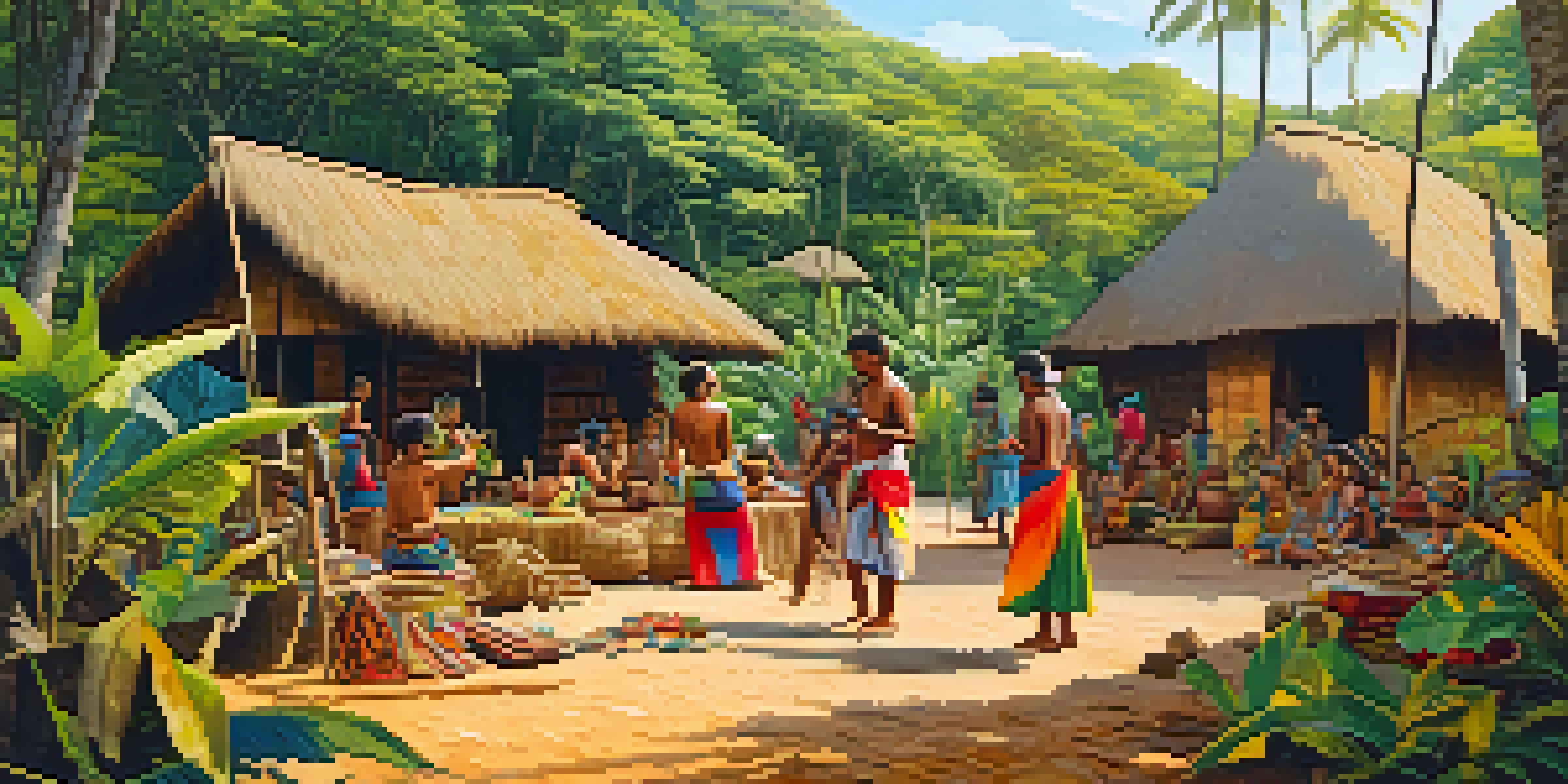The Impact of Modernization on Indigenous Cultures in Brazil

Understanding Indigenous Cultures in Brazil
Indigenous cultures in Brazil are incredibly diverse, with over 300 distinct ethnic groups. Each group has its own language, customs, and traditions, reflecting a rich tapestry of history and identity. For many Indigenous peoples, their connection to the land is not just physical but spiritual, shaping their worldview and way of life. This deep-rooted connection is a cornerstone of their cultural identity, often at odds with modern influences.
The Forces of Modernization at Play
Modernization introduces various forces, including technology, urbanization, and globalization, which can significantly impact Indigenous communities. As cities expand and industries grow, traditional lands are often encroached upon, leading to displacement. Additionally, the influx of modern technology changes the way Indigenous peoples interact with their environment and each other. This shift can create both opportunities and challenges, transforming age-old practices and beliefs.
Diverse Indigenous Cultures in Brazil
Brazil is home to over 300 distinct Indigenous ethnic groups, each with unique languages and customs that reflect their deep connection to the land.
Economic Changes and Their Effects
The modernization process often brings economic opportunities, like jobs in agriculture or tourism, to Indigenous peoples. While these opportunities can improve living standards, they also come with trade-offs, including the loss of traditional livelihoods. Many communities find themselves navigating a complex balance between embracing new economic realities and preserving their cultural heritage. This economic duality can lead to tensions within communities as they grapple with the direction of their future.
Cultural Erosion and Preservation Efforts
One of the most concerning impacts of modernization is cultural erosion, where traditional practices and languages may fade away. As younger generations become more influenced by urban lifestyles, the risk of losing cultural identity increases. However, many Indigenous groups are actively working to preserve their culture through education and community initiatives. These efforts highlight a resilience that challenges the narrative of complete cultural loss amidst modernization.
Modernization's Mixed Impact
While modernization brings economic opportunities, it also threatens traditional practices and cultural identity among Indigenous communities.
The Role of Education in Modernization
Education plays a crucial role in how Indigenous cultures navigate modernization. Access to formal education can empower Indigenous youth with knowledge and skills that enhance their ability to engage in both traditional and modern economies. Nevertheless, the curriculum often overlooks Indigenous perspectives, leading to a disconnection from their heritage. Bridging this gap through culturally relevant education can help foster a sense of pride and continuity among Indigenous peoples.
Technological Influence on Indigenous Practices
Technology has the potential to both disrupt and enhance Indigenous practices. For instance, social media platforms allow Indigenous voices to be amplified, sharing their stories, struggles, and successes with a global audience. On the flip side, the over-reliance on technology can lead to a disconnection from traditional practices and community values. Striking a balance between embracing technology and maintaining cultural practices is essential for many Indigenous communities.
Education as a Cultural Bridge
Access to culturally relevant education can empower Indigenous youth, helping them navigate the challenges of modernization while preserving their heritage.
Environmental Challenges and Indigenous Rights
The encroachment of modernization often leads to environmental challenges, such as deforestation and pollution, directly affecting Indigenous lands. These changes threaten not only biodiversity but also the traditional ways of life that depend on these ecosystems. Indigenous peoples have long been stewards of their environments, and their rights to land and resources are increasingly being recognized in global discussions. Protecting these rights is vital for both cultural preservation and environmental sustainability.
Looking Ahead: The Future of Indigenous Cultures
The future of Indigenous cultures in Brazil will likely be shaped by how they adapt to the pressures of modernization. While challenges abound, there is also a growing movement for Indigenous rights, leading to more significant recognition and protection of their cultures. Collaborative efforts between Indigenous communities and external organizations can foster sustainable development that respects traditional knowledge. Ultimately, the path forward hinges on balancing modern advancements with cultural integrity, ensuring that Indigenous voices continue to be heard and valued.